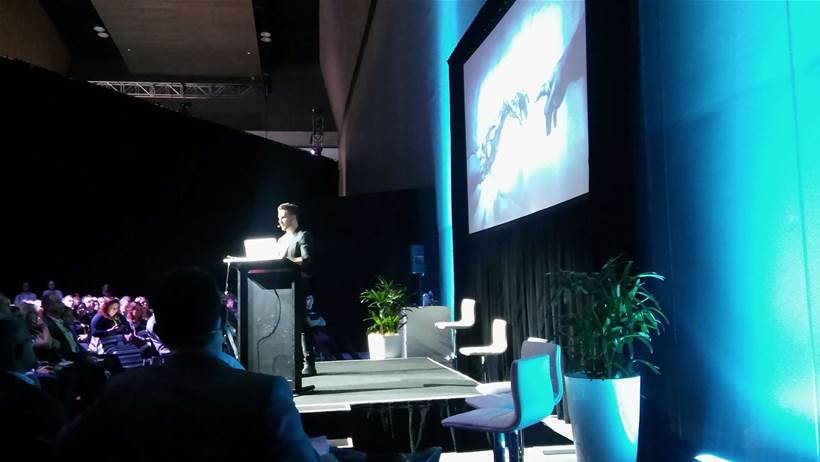The CEO of design thinking consultancy ÄKTA, John Roa, has a theory that technology is outpacing our ability to consume it or put it to good use.
“Until now we have been limited by technology, always waiting for it to catch up and become faster, smaller, more powerful or portable,” Roa told the recent Salesforce world tour in Melbourne. ÄKTA was bought by Salesforce in September last year.
“Technology inventions, paradigm shifts and revolutions are happening at a rapidly increasing pace, so much so that in our lifetime we’ve already experienced a number of these already.
“We’re getting spoiled and we’re almost not noticing them happen anymore.”
Roa calls this “the technology complex”. He doesn’t see it as necessarily a bad thing, but he does see it as something to be aware of.
Central to this idea of a “technology complex” is the shrinking cadence of innovation.
He cites the example of telephone technology: when phones were corded, people could imagine a time when they would be cordless; when they became cordless, people could imagine them becoming portable; and so on.
But it took time for each of these step changes to occur. The technology had to catch up, and new infrastructure had to be deployed to usher in these technological evolutions.
“That’s how things have always worked,” Roa said. “It was always ideas that were limited by what we had available to us in the technology”.
However, he believes this situation has changed in recent times, and sees the advent of the self-driving car as a case in point.
“Google, Tesla and other companies are telling us this capability is here, it’s real, and it’s coming [to public roads],” Roa said.
The potential benefits of autonomous cars are many and varied: “you can almost completely eliminate traffic, save tens of thousands of lives a year in the US alone, save hundreds of billions of dollars in accident related costs and all the crap that you hate about driving kind of goes away with these cars”, Roa said.
“What’s even more remarkable is these things work – they exist. You will see these things driving around California. There’s not even a steering wheel, much less a human behind it.
“Not only do they exist but they’re incredibly safe. This is real tech, not science fiction.”
However, according to Roa there’s a case to be made that self-driving technology is too far ahead of itself.
“Despite the benefits, the business impact, and technical plausibility, the most liberal say we are decades away from a fully autonomous car, while the most conservative say we will never have this,” Roa said.
“How can that big a gap exist?
“This is the technology complex at work because while the tech is fully baked and very real, society is not ready for it. We are now the barrier to tech, not the other way around.”
Roa said there is much to do before people stop being a barrier to autonomous cars.
“Imagine deploying fully autonomous vehicles in a country like the USA,” he said.
“First of all, there’s a quarter billion cars in the US alone, where do they all go? They can’t just disappear and we can’t retrofit them to become autonomous. We now have this mass of waste and infrastructure that we have to get rid of somehow.”
Roa also believed there are open questions around who might insure a driverless car, protect its occupants against hackers, and around the legislation that is required to allow their operation on public roads.
There may also be a period of adjustment required for people, and some of those conversations aren’t going to be easy.
“Who takes away your car keys and says, ‘No one’s going to drive again, sorry. You can’t legally operate a vehicle ever again’. That’s going to go over well,” he said.
Roa believes there is a need to embrace design thinking or human-centred design principles when creating new technology.
He believes such approaches could prevent situations from occurring where technology is held back by the people who are meant to embrace and use it.
However, he acknowledges the challenge of seeding this kind of thinking at a time when much of the world is pushing an agile barrow and pushing to build and iterate quickly “instead of stepping back and thinking about what should we build first”.
Ry Crozier attended the Salesforce World Tour in Melbourne as a guest of Salesforce.










